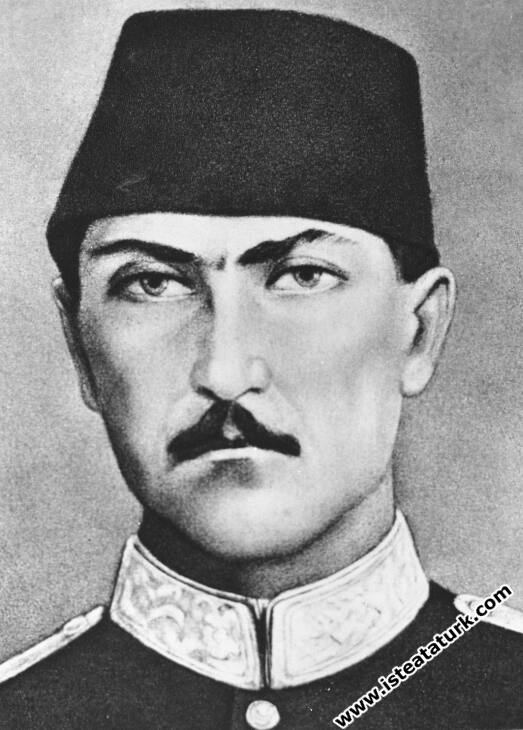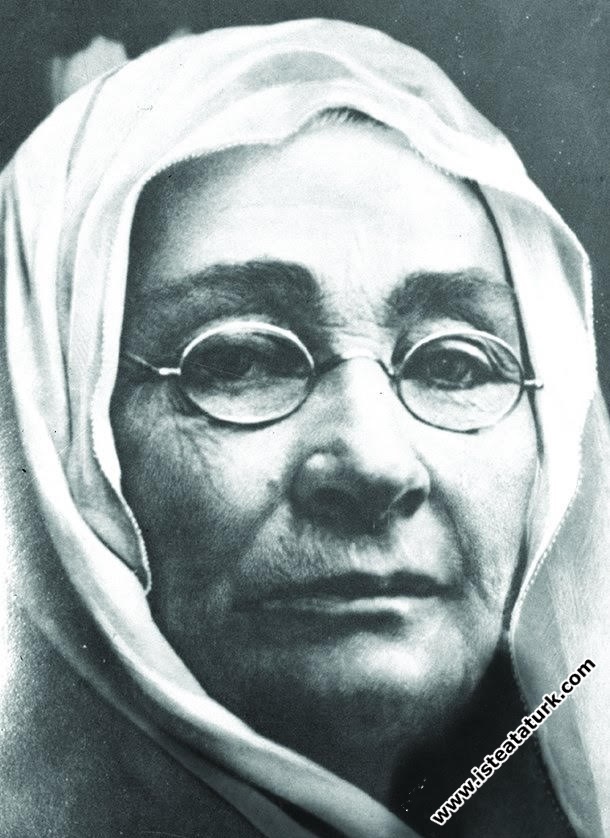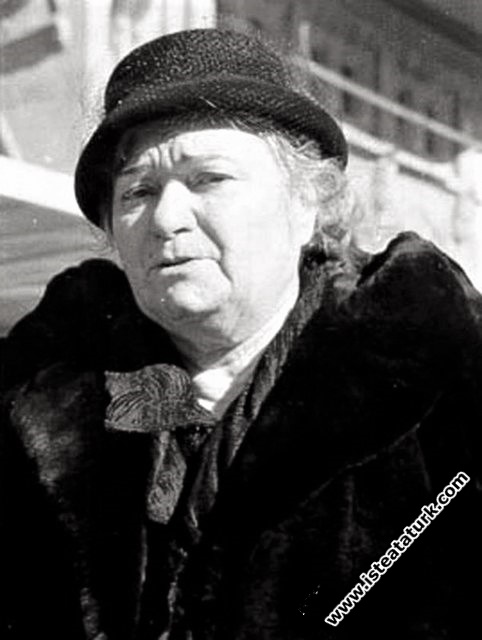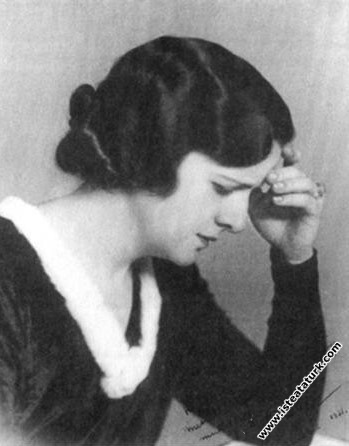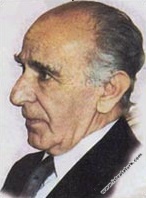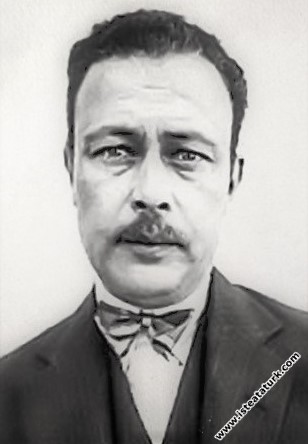
Falih Rıfkı Atay
Character Size
Life of Falih Rıfkı Atay
FALİH RIFKI ATAY (1894 - 1971)
He was born in 1894 in Istanbul. Falih Rıfkı Atay, who became famous for his newspaper articles in the genres of anecdotes, articles and travels, and especially with his memoirs introducing Atatürk closely, completed his education in Mercan High School, where Hüseyin Cahit was the director of Yalçın, after graduating from the Guide Tahsil Junior High School in Kovacılar district. He graduated from Darülfünun Literature Department. Celal Sahir Erozan, who was a literature teacher at the high school, and Orhan Seyfi Orhon, who was studying in an advanced class, helped Falih Rıfkı develop his literary appreciation. Falih Rıfkı's poems reminiscent of the works of Cenap Şahabettin and Ahmet Haşim appeared in the journal Tecelli (1911), whose first articles were published in the supplement pages of Serveti Fünun magazine, and in the magazine Kadın (1912) directed by Süleyman Bahri.
In 1912 his prose began to be published in the Tanin newspaper; His writings such as Istanbul Letters and Edirne letters were published. He worked in the offices of the Grand Viziership and the Ministry of Internal Affairs in 1913-1914. He sent interview articles to Tanin newspaper from Bucharest, where he went with Deputy Internal Affairs Deputy Talat Pasha. His writings in this period were influenced by Turkism and Turkishism movements. He went to Syria as a reserve officer in World War I; He was the special clerk of the 4th Army commander, Cemal Pasha. He collected his memories of the war in Syria and Palestine in his book "Fire and Sun" (1918). After Cemal Pasha became the Minister of the Navy, he was appointed as the deputy director of Kalemi Mahsusa (1917). Together with Kazım Şinasi Dersan, Necmettin Sadık Sadak and Ali Naci Karacan, he started to publish the Evening Newspaper (1918). He constantly wrote articles in this newspaper with the title of "The Anecdotes of the Day". Due to his influential writings supporting the War of Independence, he was sent to the Kurdish Mustafa Court War, with a demand for execution. However, after the victory of İnönü, he was saved from execution because his Divan changed his attitude to Harp. At the end of the War of Independence, he was among the journalists who came to meet with Atatürk in İzmir. Upon Atatürk's request, he was elected as a deputy from Bolu to the Second Grand National Assembly (1922). After that, he was in the Turkish Grand National Assembly for many years as a deputy of Ankara. He was the editor-in-chief of the newspapers Hakimiyeti Milliye, Milliyet and Ulus. However, after the victory of İnönü, he was saved from execution because his Divan changed his attitude to Harp. At the end of the War of Independence, he was among the journalists who came to meet with Atatürk in İzmir. Upon Atatürk's request, he was elected as a deputy from Bolu to the Second Grand National Assembly (1922). After that, he was in the Turkish Grand National Assembly for many years as a deputy of Ankara. He was the editor-in-chief of the newspapers Hakimiyeti Milliye, Milliyet and Ulus. However, after the victory of İnönü, he was saved from execution because his Divan changed his attitude to Harp. At the end of the War of Independence, he was among the journalists who came to meet with Atatürk in İzmir. Upon Atatürk's request, he was elected as a deputy from Bolu to the Second Grand National Assembly (1922). After that, he was in the Turkish Grand National Assembly for many years as a deputy of Ankara. He was the editor-in-chief of the newspapers Hakimiyeti Milliye, Milliyet and Ulus.
He took part in the Language Committee during the preparation and implementation of the New Turkish Alphabet. He strongly opposed the attitude of the Free Republican Party. While he was the editor-in-chief of Ulus newspaper, he was a member of the Ankara city plan jury and chairman of the Zoning Commission. After the transition to the multi-party period in 1946, he continued to advocate for the CHP in Ulus newspaper. After the Democratic Party came to power in 1950, he went to the opposition by founding Dünya Newspaper (1952); He defended Atatürk's revolutions against the new government. He died on March 20, 1971, while he was the editor-in-chief of this newspaper.
Falih Rıfkı Atay was one of the master writers of the Republic press with his strong, agile, attractive, expressive and clear Turkish. In addition to his editorials and anecdotes dealing with daily political events, he was a masterful essayist and interviewer in his weekly articles published in Ulus and Dünya newspapers on Sundays. He gave very interesting products of the Republican period in the genres of travel and memoirs.
WORKS OF FALIH RIFKI ATAY
Fire and Sun (recounting his memories in Syria and Palestine, 1918)
Overseas (first travelogues describing Brazil, 1931)
New Russia (Second travelogues, 1931)
Mount of Olives (Memories, which we can count as a continuation of the book Fire and Sun, 1932)
Moscow – Rome (The ones who paved the way for travel literature in our Republic Literature, 1934)
Our Mediterranean (1934)
Taymis Shores (1934)
Danube Shores (1938)
India (1944)
Journey Book (1946)
His Novel-Interview Works:
The Old Clock (1933)
Why Not to Get Rid (1952)
The Ordeal (1955)
The Leading Revolutionist (A review on Ali Suavi, 1954)
Memories:
What Atatürk Told Me (1955)
Mustafa Kemal's Armistice Book (1955)
Monography for Kids:
Your Father Atatürk (1955)
Memoirs, conversations, jokes and articles:
Çankaya (2 volumes, 1961)
Submerged Years (1963)
Faith (1965)
Atatürk's Memories (1966)
What Was Ataturk (1968)
Flag (1970)
What I've Seen Traveling (1970)
Source: www.biografi.info
